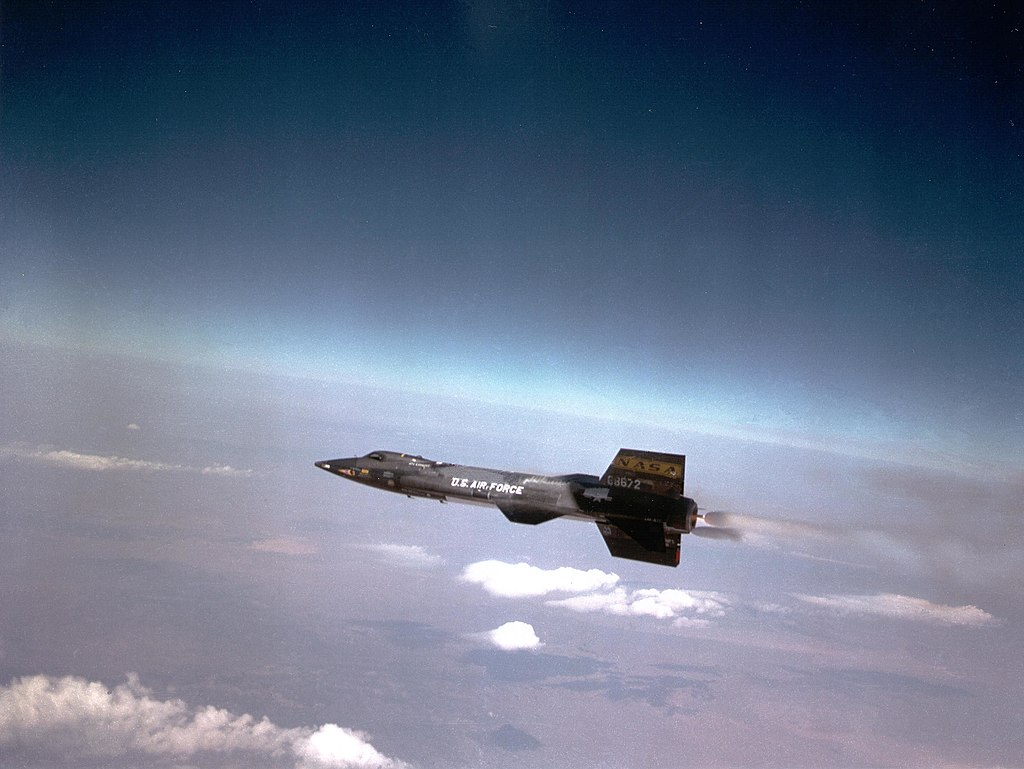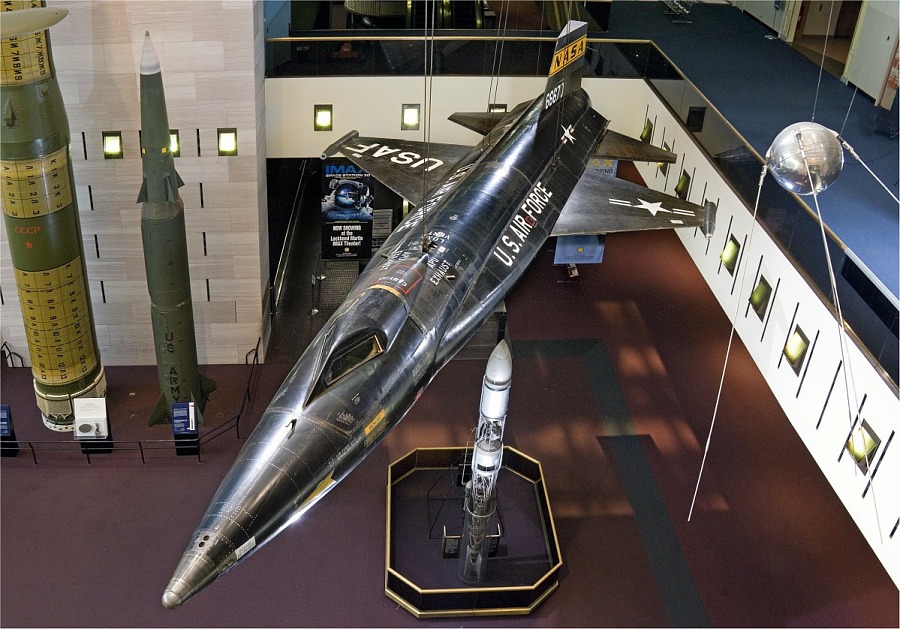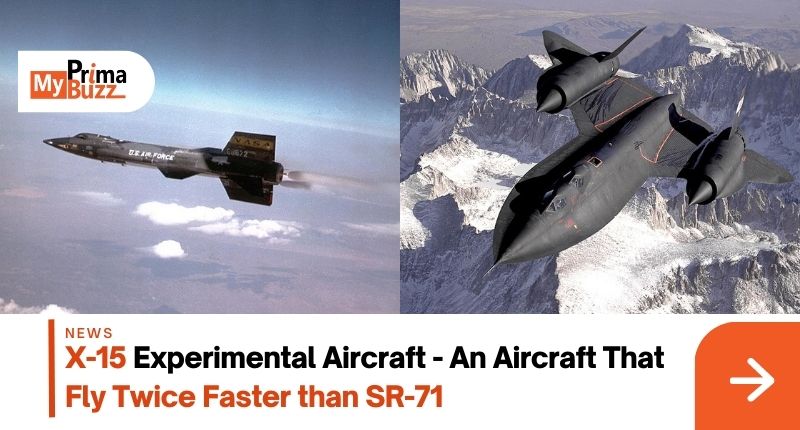Lockheed's SR-71 “Blackbird” is known to be the fastest military jet ever, with a top speed of over Mach 3.2 (3920 km per hour). However, there is one aircraft is twice the speed of Blackbird, and can fly higher as well. This aircraft is North American Aviation‘s X-15 experimental aircraft.
X-15 Experimental Aircraft That Can Fly Outside Earth Atmosphere

According to NASA, the X-15 is the first space aircraft capable of flying at speeds in excess of Mach 6 (7,245 km/h), and it can fly at 107 km from the Earth surface which has exceeded Earth's atmosphere.
In fact, the boundary between “high altitude” and “space” was determined by the X-15. During the several test flights of the X-15 that year, many test pilots who fly at an altitude of 100 kilometers above the ground reported that the aircraft has lost its function on its operating rudder surface, and the airspeed device became inaccurate. Indeed, the air in the environment here is too thin to generate effective aerodynamic force, which should belong to the space environment. Since Theodore von Karman, a Hungarian-American scientist, first predicted and calculated this phenomenon, this dividing line is called the “Karman line“.
Since the X-15 has such an important contribution to the aerospace field, why is it rarely mentioned in the honour of being the fastest aircraft? That's because the definition of the X-15 aircraft is controversial. First of all, it does not use an aviation engine, but a rocket engine, using quite special liquid oxygen and liquid ammonia propellant fuel, that is, it is more like a horizontal launch rocket.
Its take-off method is also very special. It does not take off from the ground, but is carried by B-52 bombers and “launched” in a high-altitude environment. NASA used 2 NB-52s for X-15 experiments.
According to NASA's fact sheet, NB-52 flew to an altitude of 14 kilometers above the surface at a cruise speed of Mach 0.7. At this time, the X-15 was released, and its rocket engine XLR-99 was started immediately, providing 31 tons of thrust, and the aircraft had only two minutes of acceleration time, after which the fuel will run out.
A total of 3 X-15s were built and piloted by 12 pilots, the most famous of which was Neil Armstrong, the first man to land on the moon, who had driven 7 times and the highest personal flying speed was Mach 5.7, ranked sixth in the X-15 speed list, although not the fastest one, but his X-15 flight experience made him the main astronaut for the moon landing program.
The fastest flight record for X-15 was set by William J. Knight on October 3, 1967, when his No. 2 aircraft reached Mach 6.7; and the highest flight record was set by Joseph A. Walker) on August 22, 1963, reaching 105.9 km above the surface.
In 1968, with the launch of the moon landing program, the X-15 ended its test flight mission, and the No. 2 aircraft is housed in the National Air and Space Museum.


